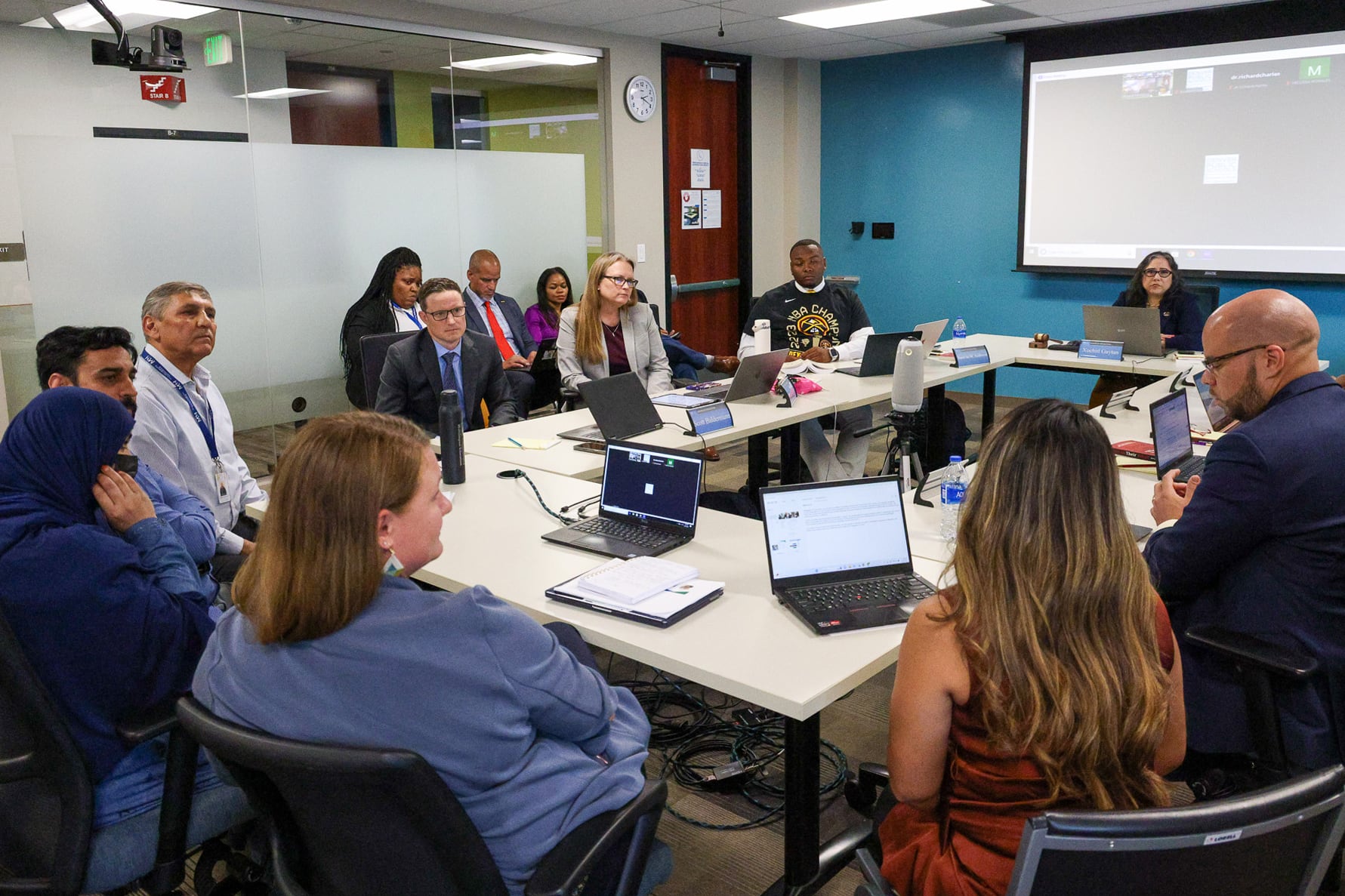Two months ahead of the Denver school board election, a new poll finds widespread distrust in the current board, even as most respondents said the district is providing students an adequate education.
The poll finds the majority of respondents rate school safety as a key concern, alongside recruiting and retaining teachers, while other major challenges facing the district such as declining enrollment don’t attract the same interest.
Colorado Polling Institute, a team made up of Republican polling firm Cygnal and Democratic firm Aspect Strategic, surveyed 414 likely voters in mid-August.
Like voters in off-year school board elections, the poll respondents’ demographics don’t match those of DPS parents. Most Denver students are Latino or Black and come from low-income households. The majority of poll respondents were white and come from middle- or high-income households, similar to the likely voter population. About 18% of poll respondents were DPS parents.
In November, voters will choose three members on the seven-member board. With Auon’tai Anderson withdrawing to pursue a state House seat, no incumbent is running in the at-large race. The poll found 87% of respondents undecided on the at-large race.
Support for all the candidates was within the margin of error, but former East High principal John Youngquist drew the most support, with a little less than 5% of respondents saying he was their preferred candidate. Ulcca Joshi Hansen — who dropped out shortly after the poll was taken — was a close second. The other candidates are Kwame Spearman, Paul Ballenger, and Brittni Johnson. Johnson had not yet filed at the time the poll was taken.
Fifty-five percent of respondents said they had an unfavorable view of the Denver school board, compared to just 21.6% with a favorable view. Two-thirds of parents reported an unfavorable view. Respondents of color and older respondents were also more likely to have an unfavorable view.
In contrast, parents were more likely to say DPS is providing a quality education, with 38% saying Denver schools are good or excellent, compared with less than a quarter of overall respondents. Another 35% said Denver schools provide a “fair” education, compared with 31% of overall respondents. This result corresponds with other polls that find parents generally have a favorable view of their children’s schools and see education more positively than non-parents.
Denver parent views of school safety diverged from their view of academics, though. Slightly more than half said they don’t feel kids are safe in school, compared to slightly more than half of non-parents who said kids are safe in school. More than 70% of parent respondents support the return of school resource officers to Denver schools, compared to 63% overall. Latino respondents also supported police in schools at higher than average rates.
The Denver school board voted to bring SROs back after a student shot and wounded two deans at East High School this spring. The incident followed several high-profile safety incidents — including the fatal shooting of a student just outside East — that led to heated debate about safety and discipline policies.
Nearly half of respondents said their top two priorities are recruiting and retaining good teachers, followed closely by school safety. About a third of respondents named student mental health or academic achievement as a top priority. Just 16% said improving outcomes for students of color was a priority, though 44% of African American respondents ranked it highly.
About 40% of Denver third-graders met grade-level expectations in reading and writing on this spring’s state standardized tests. The district has the widest test score gaps in the state based on race and ethnicity, and Spanish-speaking students are doing worse on state tests than before the pandemic.
Fewer than 8% of respondents named declining enrollment and school closures — a major challenge that occupied much of the school board’s time over the last year — as a top priority.
Bureau Chief Erica Meltzer covers education policy and politics and oversees Chalkbeat Colorado’s education coverage. Contact Erica at emeltzer@chalkbeat.org.






